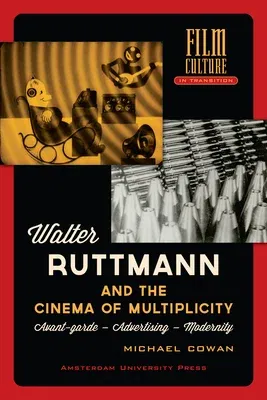Michael Cowan
(Author)Walter Ruttmann and the Cinema of Multiplicity: Avant-Garde Film - Advertising - ModernityHardcover, 28 January 2014

Temporarily out of stock
Free Delivery
Cash on Delivery
15 Days
Free Returns
Secure Checkout

Part of Series
Film Culture in Transition
Part of Series
Film Culture in Transition (Hardcover)
Print Length
260 pages
Language
English
Publisher
Amsterdam University Press
Date Published
28 Jan 2014
ISBN-10
9089645853
ISBN-13
9789089645852
Description
Product Details
Author:
Book Format:
Hardcover
Country of Origin:
US
Date Published:
28 January 2014
Dimensions:
23.37 x
15.49 x
2.03 cm
ISBN-10:
9089645853
ISBN-13:
9789089645852
Language:
English
Location:
Amsterdam
Pages:
260
Publisher:
Weight:
521.63 gm